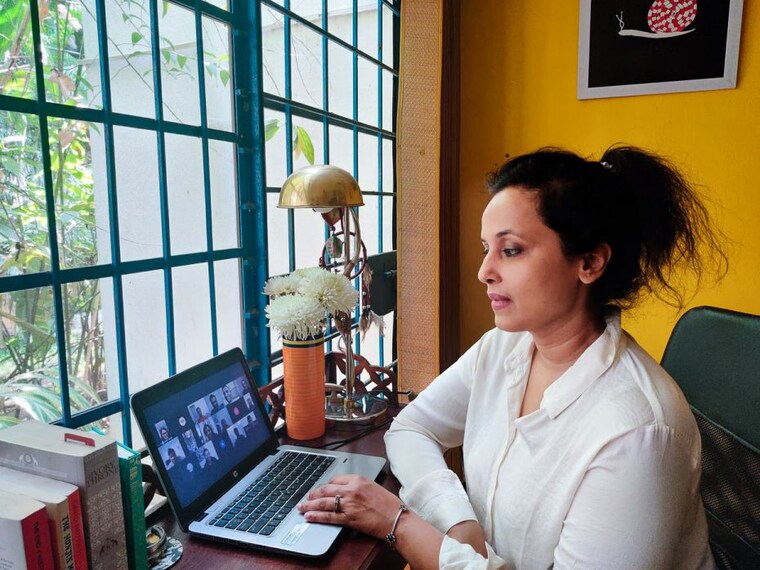A year after: A nation altered by the viral second wave
India has the highest seven-day Covid-19 case trajectory seen in any country and the grim distinction of most single-day infections in any country ever since the beginning of the coronavirus pandemic.

As the head of digital marketing at a reputed FMCG in Bengaluru, Dipti Sudhir deals with many video call meetings in a day, a norm for many in the work-from-home scenario that the pandemic ushered in last year. Dipti misses the energy of face-to-face meetings in the office environment, a sense of dynamism that rose from having a large team in a room, feeding on cues, setting off a chain-reaction of ideas. "The fear of closed environment will remain for some time and we really would have to think about how we’ll return collectively to an office as we knew it," says Dipti
When the pandemic hit, Robotics Warehouse Automation company Addverb Technologies were in the midst of building an ambitious new facility called "Bot valley" for manufacturing robots in Noida. Work had to be stalled as labourers on the construction site left for home. Spurred by the team’s enthusiasm, the founders took a call, and the team shifted in, even though the shop floor was in disarray and the machinery was partly installed. The facility was inaugurated on March 3, this year and houses 450+ engineers who can be found tinkering with robots in various stages of development, like Veloce, the robotic vehicle seen above.
The Covid-19 situation may have rapidly deteriorated in New Delhi with the positivity rate at 32 percent, the highest-ever in the capital. Which would make this scene at Delhi’s Sadar Bazar—just before the weekend lockdown—an unbelievable sight. How would one explain away the easygoing attitude to social distancing and masking? Is it an ease born of knowing that there are no outsiders among us? Or is it a nonchalance from not knowing the value of our own lives?
About sixty six kilometers from Haridwar—where the ongoing Kumbh Mela gathering of lakhs has been curtailed after many tested positive for the virus—is the agricultural heartland of Shahidwala Grunt. Zakir Ali is cycling the afternoon away along fields of wheat, ripe for harvest. In the sparsely populated village which has not had a single case of Covid-19 yet, Zakir’s school reopened after a week of holidays.
A police officer patrols on a segway scooter on the deserted Marine Drive promenade during the night curfew following the rise in Covid-19 cases in Mumbai. The arc of this promenade is otherwise alive with strollers—especially women who find it safe—through the night, a showcase for the cosmopolitan character of this sprawling, impossibly crowded city.
A banquet hall in New Delhi"s Daryaganj has become the first facility to be converted into a Covid-19 care centre to cope with the surge of cases. Linked with the biggest Covid-19 state-run LNJP hospital in New Delhi, Shehnai Banquet Hall with 120 beds is being run by an NGO called Doctors For You. Among the early patients at the Hall was Sheetal Jain, a young lawyer who had been admitted after she tested positive with mild symptoms. "Never thought a day would come when I would end up at a wedding hall in these circumstances, in these clothes," she quipped.
Photogallery
- Home /
- Photogallery /
- Slideshow /
- A-year-after-a-nation-altered-by-the-viral-second-wave